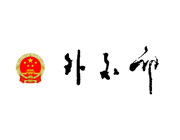


Feature: Young Chinese speaking fluent Kiswahili promotes China-Tanzania friendship
Source:xinhua 2022-07-07
If you have never met Tang Jingyu, a 29-year-old Chinese born in east China's Fujian Province, you never will realize that he is from China when talking with him on the phone in Kiswahili.
The Chinese national, with the local Tanzanian name Juma Suluhu Sharobaro, speaks fluent Kiswahili and is now working in Tanzania as a marketing officer with StarTimes.
At his residence along the Indian Ocean beach in the commercial capital Dar es Salaam, he said he had learned Kiswahili for three years beginning in 2011 at the Tianjin Foreign Studies University based in north China.
"I also participated in students exchange program between China and Tanzania during which I sharpened my Kiswahili speaking at the University of Dar es Salaam (UDSM) for eight months," said Tang in an interview with Xinhua ahead of the World Kiswahili Language Day that falls on July 7.
The United Nations Educational, Scientific and Cultural Organization (UNESCO) last year declared July 7 as the World Kiswahili Language Day. Tang said he's very excited because Kiswahili is his second language after Chinese.
Kiswahili is now spoken by more than 200 million people across the world, especially in the East African countries of Tanzania, Kenya, Uganda and the Democratic Republic of the Congo, said Tang.
"Kiswahili is helping me in my work and in my life in Tanzania," said the marketing officer of StarTimes, also trading as Star Media (Tanzania) Limited, a Chinese firm that provides digital TV solutions.
"I am encouraging my fellow Chinese to learn Kiswahili to strengthen their good cooperation with their Tanzanian friends," Tang said in a message to his fellow Chinese in Tanzania as the World Kiswahili Language Day approaches.
William Anangisye, the vice-chancellor of UDSM, said during the 21st "Chinese Bridge" Chinese Proficiency Competition 2022 held at the Confucius Institute at UDSM last month that there are more than 10,000 Chinese people in Tanzania and at least 500 small and large Chinese-managed enterprises.
Tang recalled that in 2017, then Vice President and now President Samia Suluhu Hassan, one of the champions and ambassadors of Kiswahili across the world, gave him the name Suluhu at a ceremony for the laying of the foundation stone for the construction of Palm Village apartments in Dar es Salaam.
"The president gave me her second name after she was impressed with my translation of a Chinese statement into fluent Kiswahili," said Tang who has lived in Tanzania for eight years.
Tang said as an employee of StarTimes, he has been able to participate in a number of events that had been conducted in Kiswahili, including Bongo Star Search in 2018 when he sang a song called Malaika, translated into English as Angels. Bongo Star Search is a Tanzanian music reality-singing competition show.
"The Bongo Star Search helped me to build a bridge of cooperation between China and Tanzania. And it made me famous to Tanzanians. I can state with confidence that most of them like me," he said.
"I also composed a Kiswahili song called Cha Upepo. Most people love the song. The song is about my early experience in Tanzania," he said.
Tang believes that the China-Tanzania cultural cooperation is growing from strength to strength.
He said Chinese dramas translated into Kiswahili are gaining popularity in Tanzania, citing a drama called Doudou na Mama Wakwe Zake as one of the most-watched dramas on state-run Tanzania Broadcasting Corporation. Doudou na Mama Wakwe Zake is loosely translated into English as Doudou and Her Mothers-In-law.
He said that he also used to participate in organizing a China-Tanzania film exhibition that was welcomed by both Chinese and Tanzanian officials.
UNESCO declared July 7 of each year as World Kiswahili Language Day during its 41st session in the French capital Paris in 2021. UNESCO in a statement said that Kiswahili is one of the most widely used languages of the African family and the most widely spoken in sub-Saharan Africa.
Kiswahili is, therefore, an indispensable tool in the achievement of the Sustainable Development Goals 2030 and in facilitating regional integration, particularly in the implementation of the African Continental Free Trade Area Agreement, according to the statement.
Appendix:




